Civil Liberties, Civil Rights, Criminalizing Dissent, Freedom Of Speech, Gaza, genocide, Human Rights, War Resister
Podcast: Play in new window | Download
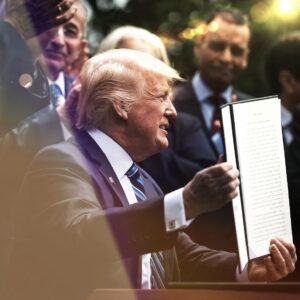
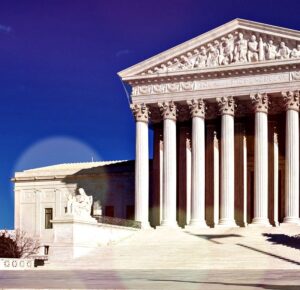
Federal Court Challenges to Trump Administration Arguments
The number of active lawsuits in federal courts challenging Trump administration arguments has now topped 100. In 21 of those cases, judges have already issued temporary restraining orders or preliminary injunctions, effectively stopping, at least for now, parts of Trump’s agenda.
For example, as reported in the New York Times this past Sunday, trial court judges have blocked for now Trump’s mass firings of civil servants, Musk’s access to sensitive federal agency data, the relocation of transgendered women inmates to men’s prisons, the pursuit of immigrants inside houses of worship, and the freezing of up to $3 trillion of federal funding to the states. And in a very important case, a federal judge entered a final judgment reinstating the head of the federal watchdog agency. And just yesterday, the Supreme Court ruled against the Trump Administration halting the sending out of those billions of foreign aid dollars.
But it must be pointed out that in a number of preliminary victories against Trump’s actions, the government, though losing the first round in the case, have nevertheless stalled in obeying the court’s orders. And Trump, himself, posted the absolutist notion that, “He who saves his Country does not violate any Law.”
Five of the judges who have ruled against Trump were appointed by Republican presidents, one by Trump himself. As a result of Trump’s losing record in court cases so far, there is now talk on the right of seeking to impeach judges who rule against the Trump Administration. And the number of death threats judges are experiencing from the public have gone up alarmingly, as well.
Guest – Stephen Rohde is a civil rights activist, author, and constitutional scholar. He practiced civil rights law for almost 50 years. He currently serves as chair of the Interfaith Communities United for Justice and Peace (aka ICUJP), which was formed in the wake of 9/11 for the purpose of organizing faith-based communities to call for an end to war and violence. He is also a past President of the ACLU Foundation of Southern California, and past Chair of Death Penalty Focus, and Bend the Arc: A Jewish Partnership for Justice. Despite that long list of affiliations, today he’s not speaking on behalf of any of those organizations.
—-

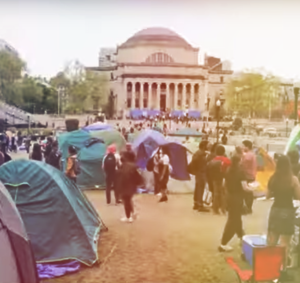
Free Speech Protections Threatened Under Trump Administration
On March 4, 2025, President Donald Trump threatened to cut federal funding to colleges that permit what he calls “illegal protests.” This statement on social media has sparked a wave of reactions from civil rights groups as a direct attack on fundamental freedoms such as speech and assembly.
In his post, Trump echoed ideas from previous executive orders, including his 2019 order and one issued in January, which specifically targeted pro-Palestinian student protests on college campuses, calling them antisemitic. But Trump’s latest comments go further, asserting that any protest deemed illegal would lead to harsh consequences, including the imprisonment of agitators and expulsion or arrest of American students. The details, however, remain unclear, particularly around how the government would define “illegal protests” or the enforcement of such measures.
Trump’s latest threat has reignited concerns about the balance between freedom of speech and government intervention on college campuses. It also raises important questions about the rights of students, faculty, and protesters in the context of broader political and social movements.
Guest – Attorney Mara Verheyden-Hilliard from the Partnership for Civil Justice Fund and the Center for Protest Law and Litigation in Washington, DC. Mara is one of the nation’s leading litigators defending protesters and winning numerous reforms in police practices at mass assemblies and demonstrations.

———————–
CIA Sponsored Terror, Civil Liberties, Civil Rights, Criminalizing Dissent, Extraordinary Rendition, Freedom Of Speech, Human Rights, Iraq War, Prosecution of the Bush Administration, Targeting Muslims, Torture, Violations of U.S. and International Law, War Resister, Whistleblowers
Podcast: Play in new window | Download

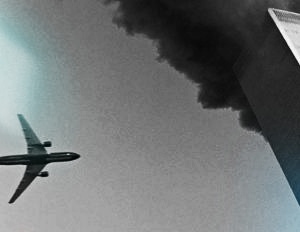
September 11, 2001: Lessons Learned And Overlooked
It has been 23 years ago this week since the attacks on September 11, 2001 in New York City, the Pentagon, and Shanksville, PA, killing nearly 3,000 people and injuring more than 6,000. On that day, the United States had a choice: The George W Bush administration could have treated the attacks as a violation of US and international law, launched a criminal investigation, and brought the perpetrators to justice in accordance with the rule of law. Instead, President Bush waged endless wars against Afghanistan and Iraq, pushed through Congress the USA Patriot Act, opened the notorious detention center at Guantanamo Bay which remain to this day, rounded up Muslims and South Asians for indefinite detention, initiated a wave of civil liberties and human rights violations, and committed wholesale torture against detainees and others.
To assess the legacy of 9/11 and the lessons learned and the lessons overlooked, we’ve invited someone who was at the center of Bush’s War on Terror. John Kiriakou is a journalist, former CIA counterterrorism officer, former senior investigator for the Senate Foreign Relations Committee, and former counterterrorism consultant for ABC News.
In 2007, Kiriakou blew the whistle on the CIA’s torture program, telling ABC News that the CIA tortured prisoners, that torture was official U.S. government policy, and that the policy had been approved by President George W. Bush. He knew what he was talking about. In 2002, he was responsible for the capture in Pakistan of Abu Zubaydah, then believed to be the third-ranking official in al-Qaeda.
He became the sixth whistleblower indicted by the Obama administration under the Espionage Act of 1917 — a law designed to punish spies. He served 23 months in prison as a result of his revelations.
In 2012, the Ralph Nader family honored Kiriakou with the Joe A. Callaway Award for Civic Courage, an award given to individuals who “advance truth and justice despite the personal risk it creates.” He won the PEN Center USA’s prestigious First Amendment Award in 2015, the first Blueprint International Whistleblowing Prize for Bravery and Integrity in the Public Interest in 2016, and also in 2016 the Sam Adams Award for Integrity in Intelligence, given by retired CIA, FBI, and NSA officers.
Guest – John Kiriakou is the author of eight books, including The Reluctant Spy: My Secret Life in the CIA’s War on Terror; and The CIA Insider’s Guide to the Iran Crisis. I met John in 2017 and we collaborated on companion reviews or the Los Angeles Review of Books of the book with the euphemisitic title Enhanced Interrogation written by James E. Mitchell and Bill Harlow, the architects of the American torture system.
—-

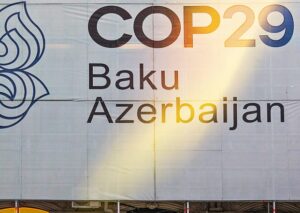
COP 29 Held In Azerbaijan Dictatorship
This year the UN Climate Conference — known as COP29 — will be hosted by the petrol-dictatorship of Azerbaijan. As COP29 delegates prepare to attend talks in Baku, the international community has a chance to shine a spotlight on Azerbaijan’s abysmal human rights record, notably the blockade and ethnic cleansing of Nagorno-Karabakh’s (Artsakh’s) Armenian population last year, and amid the government’s escalating domestic crackdown on freedom of speech, assembly and the press.
Ironically, Azerbaijan’s dictator Ilham Aliyev allocated $1 million to the UN Human Settlements Program, one day before a UN mission visited the Artsakh region who reported ‘no irregularities’ despite the territory being depopulated by Azerbaijan’s military invasion.
As one of the world’s top environmental and fossil fuel polluters, during its invasion of Nagorno-Karabakh, Azerbaijan used the outlawed, lethal and environmentally hazardous White Phosphorus as a chemical weapon on the native Armenian population and their highly forested environment. In that fatal siege, which liquidated all native Armenians, the Azeri government-sponsored blockaders posed as climate activists, while punishing true protesters of lethal pollution, in Azerbaijan, especially journalists and activists in advance of COP29.
Guest – Karnig Kerkonian, one of 23 legal advisors representing the Republic of Armenia at the ICJ (International Court of Justice) in 2021. Karnig’s team presented their case against Azerbaijan, calling on the Tribunal to take provisional measures “as a matter of extreme urgency” to “protect and preserve Armenia’s rights and the rights of Armenians from further harm.” Azerbaijan has ignored the ICJ’s November 2023 ruling to “take all necessary measures to prevent and punish acts of vandalism and desecration affecting Armenian cultural heritage, including but not limited to churches and other places of worship, monuments, landmarks, cemeteries and artifacts.” Attorney Kerkonian has also represented the Armenian community of Old Jerusalem in recent Israeli settler incursions upon the Armenian Quarter.

————————
Civil Liberties, Civil Rights, Criminalizing Dissent, genocide, Human Rights, Right To Dissent, Targeting Muslims, U.S. Militarism, Violations of U.S. and International Law, War Resister
Podcast: Play in new window | Download
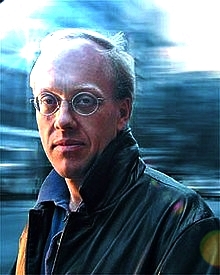
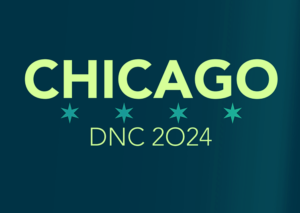
The More Effective Of Two Evils
The extensive growing repression and censorship in our country is manifest daily. Already some 3000 students have been arrested and many of their encampments on college campuses have been violently closed down. The leading newspaper, the New York Times, has instructed reporters not to use the words “genocide” or “ethnic cleansing.” Journalist Chris Hedges has been removed from The Real News Network for interviewing, Dennis Kucinich, the independent candidate for Congress in Ohio and for not supporting the presidential candidacy of Joe Biden.
The necessity for independent political action, independent of both the Republican and the Democratic parties, is the lesson many social activists are drawing. The journalist, Glen Ford, of the Black Agenda Report , coined the phrase “the more effective of two evils” in describing the Democratic Party.
The Democrats are trying to beat people into their camp by haranguing about how horrible Trump is. That’s true. But look at how effective Biden has been in supporting the Israeli genocide. It has only been the independent action of the courageous students that may succeed in tempering the onslaught. It has already had some effect. Activist are now focusing on the fact that it was the Democratic Party on a national and local scale that coordinated attacks on the Palestine solidarity encampments. Just as they did under Obama in closing down Occupy.
The Democrats prevented Bernie Sanders from getting the nomination. Had he not supported the Democrats and became an independent our movement would’ve been much more effective than his lobbing Biden. He has been reduced to the edge of relevance. Significant social change comes from organizing people independently. The rise of the CIO, the civil rights movement and the movement to end the war in Vietnam are illustrations of this truth.
In appreciating the role of the Democratic Party, social activists are increasingly concluding that independent, political action now will help us against Trump should he get elected. Conversely herding people in to supporting the Democratic Party will disarm us.
Guest – Chris Hedges, the journalist and author discusses the collapsing media landscape, what happened to him at The Real News Network and how we preserve journalism. He spent two decades as a foreign correspondent serving as the Middle East Bureau Chief and Balkan Bureau Chief for The New York Times where he was awarded the Pulitzer Prize. He is the author of 14 books including War is a Force That Gives us Meaning, Days of Destruction, Days of Revolt, which he co-wrote with the cartoonist Joe Sacco, and The Death of the Liberal Class.
—-
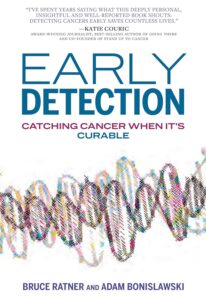
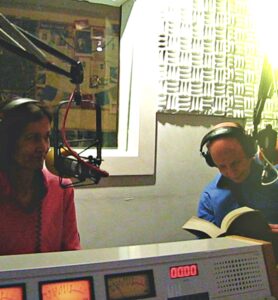
Early Detection: Catching Cancer When Its Curable
The “war on cancer“ declared by President Richard Nixon over 50 years ago has been a failure. Mortality rates for victims of cancer have not decreased, except for the successful campaign against smoking.
Attorney Michael Ratner, when he was the President of the Center for Constitutional Rights, helped found Law And Disorder radio 20 years ago. We lost him to cancer eight years ago.
Michael’s younger brother Bruce Ratner has co-authored the book Early Detection: Catching Cancer When It’s Curable. It Is dedicated to the memory of Michael Ratner. Bruce and Michael shared similar values. Over the years, cancer rates have pretty much remained the same. Very high. Particularly affected are poor people, rural people, and people of color.
Most money spent on fighting cancer by big pharmaceutical companies goes into researching and developing medicines for late-stage cancers. These medicines have proven to only prolong life for several months. So, what is the answer to truly combating cancer? Early detection. And it must be quite early on.
Funds currently misdirected could be used in this effort. Prostate, breast, colo-rectal, and lung cancers can be detected early. But too often they are not. Even when they are, many people don’t follow up with treatment. A blood test has been developed to identify 50 different cancers. But what’s missing is a massive program of education and organization to catch cancer in its early stages.
Guest – Bruce Ratner studied science at Harvard, graduated from Columbia law school and then taught at NYU Law School. New York City Mayor John Lindsay appointed Bruce to be the Commissioner of Consumer Affairs. Bruce went on to develop real estate in Manhattan and Brooklyn and brought the first professional athletic team, the Brooklyn Nets, to Brooklyn, where he developed the Barclay Center. He also sits on the boards of Weil Cornell Hospital in Memorial Sloan Kettering Hospital. He has initiated the Michael D. Ratner Center for Early Detection of Cancer.

————————————–
Censorship, Civil Liberties, Civil Rights, Criminalizing Dissent, genocide, U.S. Militarism, War Resister
Podcast: Play in new window | Download


Free Speech: Protest Testing The Limits Of Protection
As controversy rages over protests, encampments, and arrests at hundreds of college campuses around the country, in reaction to the war in the Middle East, free speech is once again at the forefront of national debate. Time and again in American history, the nation has been gripped by the complex question of whether certain speech is or is not protected by the First Amendment. Recently, college presidents have been under fire for failing to protect free speech or for going too far in tolerating free speech. Some have been forced to resign and others have called in the police. Students have been attacked; others have been suspended; student political organizations have been banned. What’s going on and where does the First Amendment fit into all this?
Guest – Nadine Strossen, a leading expert on constitutional law and the First Amendment. Nadine Strossen is Professor of Law Emerita at New York Law School and served as President of the American Civil Liberties Union from 1991 until 2008. She is a Senior Fellow with the Foundation for Individual Rights and Education and is on the advisory boards of the ACLU, Academic Freedom Alliance, Heterodox Academy, National Coalition Against Censorship, and the University of Austin. The National Law Journal has named Strossen one of America’s “100 Most Influential Lawyers,” and in 2023, the National Coalition Against Censorship selected her for its Judy Blume Lifetime Achievement Award for Free Speech.
She is the author of HATE: Why We Should Resist It with Free Speech, Not Censorship (2018) and Free Speech: What Everyone Needs to Know® (2023). Her book Defending Pornography: Free Speech, Sex, and the Fight for Women’s Rights was named a New York Times “notable book” of 1995, and was republished this year as part of the New York University Press “Classic” series.

——————————–
Civil Liberties, Civil Rights, Criminalizing Dissent, Human Rights, U.S. Militarism, Violations of U.S. and International Law, War Resister
Podcast: Play in new window | Download

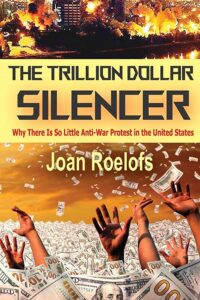
The Trillion Dollar Silencer: Why There Is So Little Anti-War Protest in the United States
As the notion of perpetual war and a militarized society are normalized, notably absent are antiwar protests by faith-based organizations, civil rights groups, academics, and others. The Trillion Dollar Silencer details this absence while laying bare the devastation wrought in the United States and abroad by the military industrial complex.
Author Joan Roelofs delves into the pervasive role of military contractors and bases that have come to be economic hubs of their regions. She discusses how state and local governments are intertwined with the Department of Defense (DoD), including economic development commissions at all levels. Contracts and grants to universities, colleges, and faculty come from the DoD and its agencies, such as the Defense Advanced Research Projects Agency. The Minerva Initiative funds social scientists for military research. Civilian jobs in the DoD provide opportunities for scientists, engineers, policy analysts, and others. The Reserve Officers’ Training Corps (ROTC) programs are subsidized by the DoD.
In addition to businesses large and small, nonprofits receive DoD contracts and grants, including environmental and charitable organizations such as The Nature Conservancy and Goodwill Industries. Individuals, arts institutions, charities, churches, and universities share in the profitability of military-related investments. Pension funds for public and private employees and unions are replete with military stocks. In other words, the military industrial complex is so embedded in our political economy that it has become virtually impossible to find any sector of our society that is not intertwined with militarism.
Guest – Joan Roelofs, Professor Emerita of Political Science at Keene State College. She teaches in the Cheshire Academy for Lifelong Learning and writes for scholarly and political publications. Joan is the author of “Foundations and Public Policy: The Mask of Pluralism,” and “Greening Cities: Building Just and Sustainable Communities.” She has been an anti-war activist ever since she protested the Korean War.
Hosted by attorneys Heidi Boghosian and Julie Hurwitz

————————-
Civil Liberties, Civil Rights, Criminalizing Dissent, Human Rights, Truth to Power
Podcast: Play in new window | Download
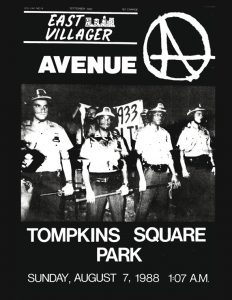
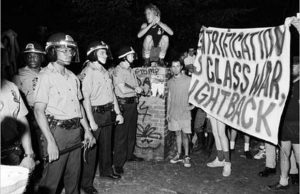
Tompkins Square Park Police Riot 35th Anniversary Special
Thirty five years ago, a singular event occurred in Manhattan’s East Village that would prove transformative to many lives for years to come. Today on Law and Disorder we bring you a special program on the August 1988 Tompkins Square Park Police Riot as recounted by several individuals who were there for the entire event. We share firsthand observations of unbridled police violence, talk about how we came to be there, and discuss how the riot marked the lynchpin to transform an entire neighborhood from a mecca of creativity and political activism, to the new home of TARGET, Starbucks and other hallmarks of American gentrification.
Tompkins Square Park is bounded on the West and East by Avenues A and B, and on the North and South by 10th Street and 7th Streets. It falls in the part of that neighborhood often referred to as Alphabet City, named for its 4 Alphabet numbered avenues, that in the 1960’s and 1970’s were a haven for drug sellers and squatters and a large Puerto Rican community. The park had a history of activism as it was the site of a riot in 1874 on behalf of the city’s labor movement.
In 1988, a homeless encampment was erected in the park, attracting a wide range of activists, squatters, and homeless persons. Several local residents complained and in a controversial move, the local governing body, Community Board 3, on June 28, approved a 1 AM curfew from what had long been a 24-hour open park. The Avenue A Block Association supported the curfew as it represented the few local businesses that existed then. Many residents opposed the curfew, including those who would have to take a longer walk around the park to get home.
The New York City City Parks Department agreed to enforce the curfew, and on July 31, 1998 protesters gathered at a rally there. Police, responding to alleged noise complaints, entered the park. A skirmish ensued, and several civilians and six officers were treated for injuries. Four men were arrested on charges of reckless endangerment and inciting to riot.
Guests – Susan Howard, East Village Community Activist, John McBride, Photographer and Arthur Nersesian, East Village Writer.
Written by Attorney Heidi Boghosian and produced by Geoff Brady.

———————————————-


















